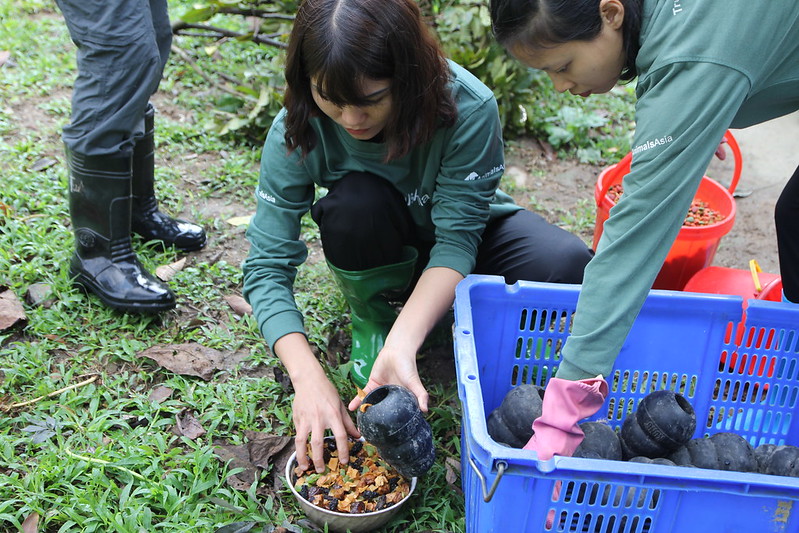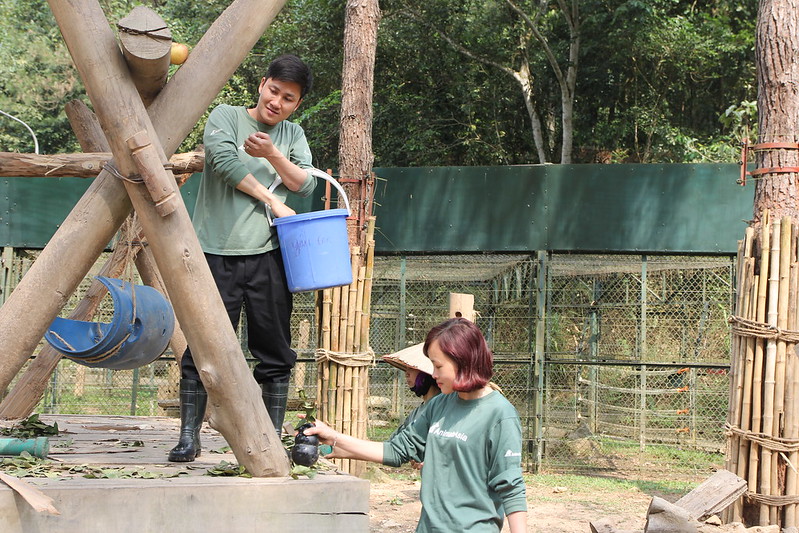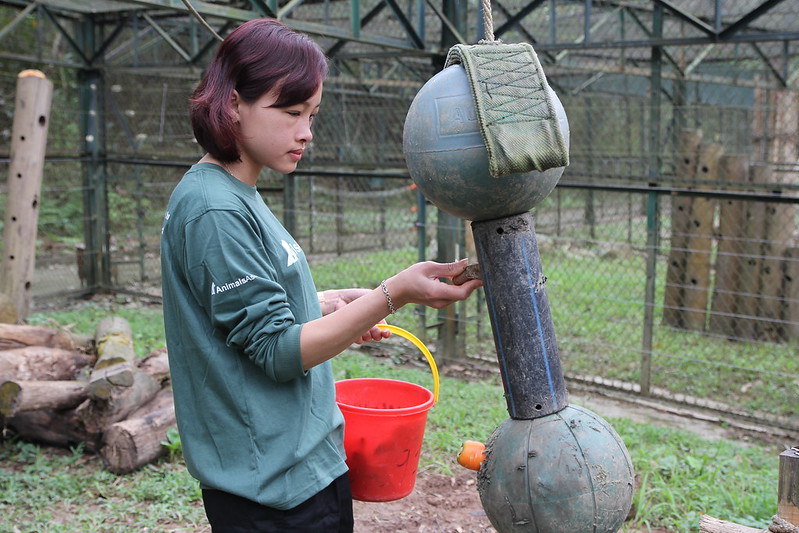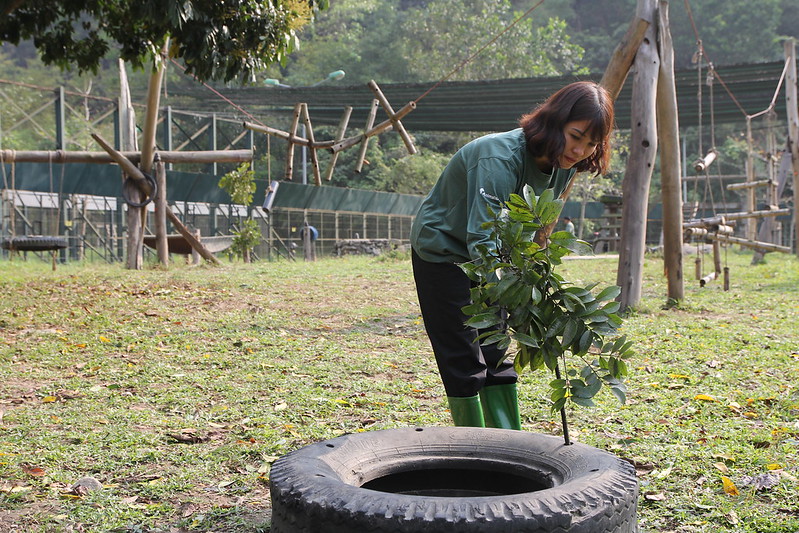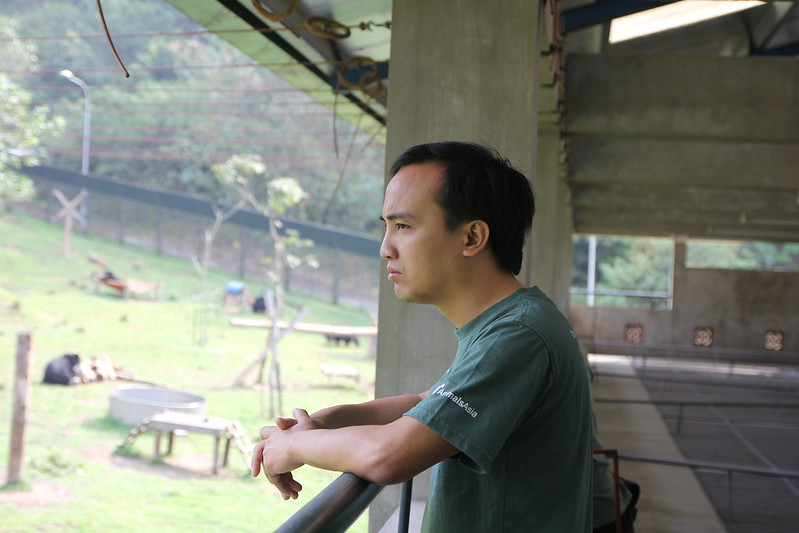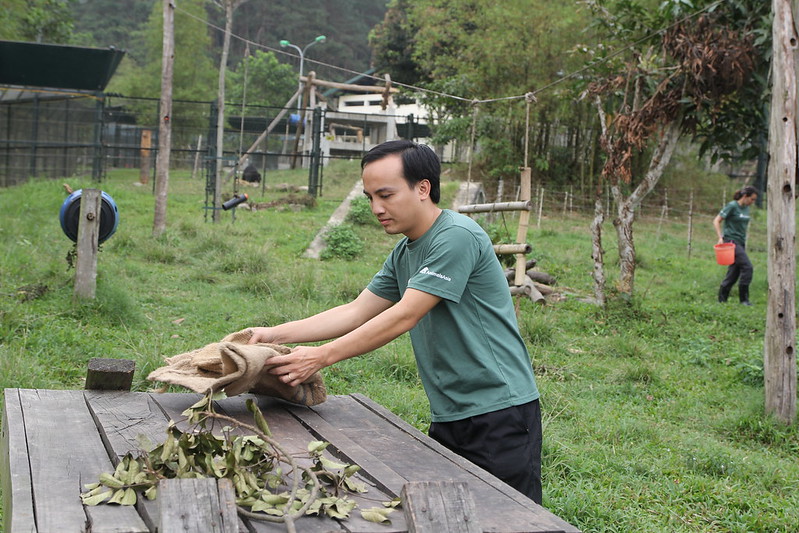Meet the Vietnamese heroes preparing to welcome 1,000 rescued bears
29 March 2018
As part of the landmark agreement to end bear bile farming, staff from government rescue centres are receiving training from Animals Asia in the highest levels of care.
Over the next four years, up to 1,000 moon bears in Vietnam will be rescued from abject cruelty.
These 1,000 bears are currently being held on privately owned bile farms where their bile is extracted for use in traditional medicine.
But thanks to the landmark legal agreement between Animals Asia and the government of Vietnam to completely end the bear bile trade, every single bear will be rescued and transferred to sanctuaries around the country by 2022.
As part of the huge rescue operation, Animals Asia is upskilling staff from government-run rescue centres to make sure they are ready to welcome and rehabilitate bears suffering from the physical and mental trauma of bile farming.
Animals Asia’s Vietnam Director, Tuan Bendixsen said:
“Over the next four years there will be a flood of bear rescues in Vietnam and it will require a huge communal effort to ensure facilities and skills are in place to care for them. Training has already begun with local animal welfare charities and government run shelters taking part to ensure they will be ready to welcome bears in need when the rescues begin.”
In March, staff from government run shelters took part in a week of training at Animals Asia’s Vietnam Bear Rescue Centre where nearly 200 bears are cared for.
The visiting staff from Pu Mat and Hoang Lien wildlife rescue centres learned about husbandry routines, enrichment, bear behaviour, integrations, nutrition, record keeping and how to behave around bears in order to mitigate stress.
Training was also delivered this month at Hanoi Zoo with the participation of zoo staff as well as local charities and animal shelters including Save Vietnam's Wildlife, the Endangered Primate Rescue Centre, Turtle Conservation Centre and the Hanoi Wildlife Rescue Centre.
Nguyen Minh Hue, Nguyen Thi Long and Nguyen Si Quoc all took part in the weeklong training at Animals Asia’s Vietnam Bear Rescue Centre. Here’s what they had to say:
Nguyen Minh Hue | Animal Keeper | Hoang Lien National Park
After eight years working at Hoang Lien, I found the biggest difficulty is understanding rescued animals’ behaviours. They are different from each other, even those in the same species, not to mention the diversity of rescued animals at our facility. One may like eating this kind of food, but it’s not the same for the others.
Preparing enrichment is a new skill that I’ve learned to make our rescued animals less bored in their dens. I’ve also learned that bear observation is useful in helping me understand the animals more deeply in order to give them better care.
I will definitely suggest a change with our senior managers after this training course so that we can improve our standards.
Nguyen Thi Long | Animal Keeper | Pu Mat National Park
Our rescued animals are not receiving good medical care because we have a limited budget for medical devices and a lack of veterinary expertise. Mostly, the care is just done by visual checks.
This was the first time I have had such valuable experience in taking care of bears, which has been great for helping me understand their daily behaviours so that I can apply some of the skills I’ve learned at Pu Mat.
We don’t have semi-natural enclosures like this, but after this training course, similar enrichment can be provided to animals in dens and enclosures to keep them busy.
Nguyen Si Quoc | Rescue Centre Manager | Pu Mat National Park
Our biggest obstacles are our outdated medical devices, a lack of food and a lack of veterinary expertise which makes it hard to take care of rescued animals at Pu Mat rescue centre. Thankfully Animals Asia has sent a lot of support to us over a long period of time.
We have two moon bears at the centre already and this training week has given me a greater understanding about bears that will enable me to enhance the bears’ living standards.
Animals Asia Founder and CEO, Jill Robinson MBE said:
“Rescuing the estimated 1,000 bears still on farms in Vietnam will be one of the biggest wildlife rescue operations in the history of animal welfare.
“There is so much work going on behind the scenes right now before we can even start to move forward with actually building the sanctuaries needed, but in the meantime we are laying the groundwork by increasing capacity in Vietnam with the very people who will care for these bears for the rest of their lives.
“Their energy, enthusiasm and dedication cannot be doubted and we will give them every support they need in order to achieve their goals and do what is right for these long-suffering bears.”
READ MORE:
Vietnam agrees plan to close all bear bile farms
Explained: The roadmap to ending bear bile farming in Vietnam
Reaction: how the plan to rescue 1,000 bears was received
Why bear bile farming persists in Vietnam
BACK
